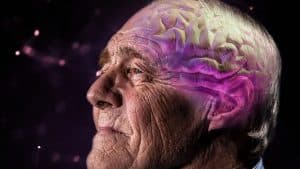We all have our worries and our fears. Sometimes, they embed so deep that they’re a source of constant stress. When your anxieties reach the point where they stop you from living your everyday life, they may have gone past what can just be dismissed as human nature.
In general, anxiety refers to ongoing unease. Clinically, anxiety refers to worry about the future, sometimes with no obvious cause, while fear is about a reaction to some kind of threat detected in the present. Both can elevate the heart rate and blood pressure, cause restlessness and disturbed sleep and make it difficult to focus, along with other physical and mental symptoms.
There are actually a range of conditions that come under the heading of anxiety disorders. The one you probably think of first is generalized anxiety disorder. This is when your anxiety is ongoing and not related to a specific event. As soon as you get one worry under control, another will appear.
Sometimes generalized anxiety disorder can appear for no obvious reason. Other times, it’s related to genes, brain activity or brain chemistry. Traumatic experiences, physical conditions that cause chronic pain, and drug and alcohol misuse are all risk factors when it comes to anxiety.
Other forms of anxiety disorder include specific phobias, such as claustrophobia or agoraphobia, when people have a strong but irrational fear of something (claustrophobia is fear of small spaces, agoraphobia is fear of open spaces).
Social anxiety disorder, also known as social phobia, is somewhat self-explanatory. It is a form of anxiety specifically linked to social situations. Teenagers are particularly susceptible, and many (though not all) people will grow out of it. People with social anxiety disorder struggle in situations when they are observed by other people or have to make conversation.
Panic disorder is a form of anxiety characterized by sudden panic attacks. These can cause sweating, breathlessness, dizziness, shaking, chest pain, racing heartbeats and various other physical responses. They are unlikely to cause you serious long-term damage, but they can be incredibly disruptive to your life.
Post-traumatic stress disorder (PTSD) can also be considered a form of anxiety disorder, this time in reaction to traumatic events. It can involve flashbacks and nightmares that often lead the sufferer to feel isolated. Repeated and ongoing traumas can lead to what’s known as complex PTSD.
Any situation where your feelings of anxiety are preventing you from living your life and continue to do so for an extended period of time is a situation where you could benefit from medical advice. Fear can make it difficult to go to the doctor to ask for help, so maybe consider talking to a trusted friend first, or using online resources where you do not necessarily experience the social anxiety you would in person or on the phone.
However you do it, once you find a way to ask for professional help, there are a variety of ways you may be able to manage your condition. These include through medication (such as selective serotonin uptake inhibitors, or SSRIs) or psychological support such as cognitive behavioral therapy. You may also be able to learn some simple tips and tricks that you can apply in daily life to ease your anxiety when it arises.




